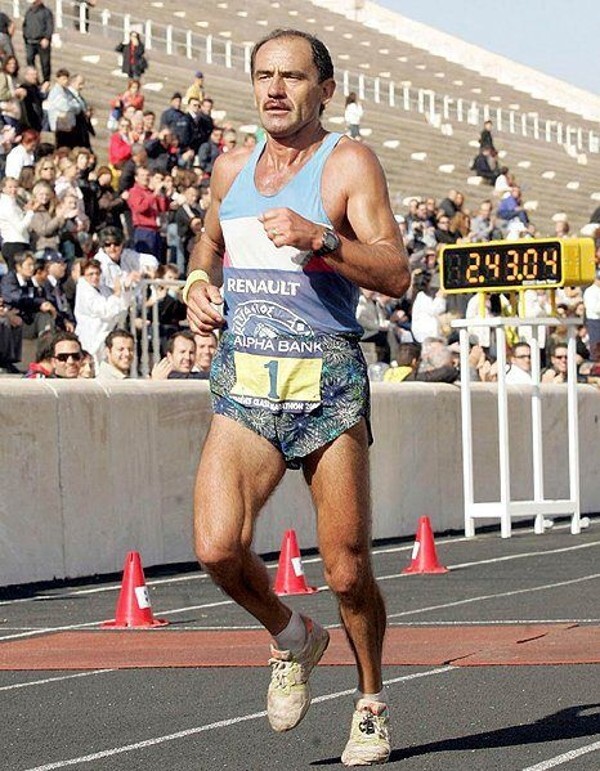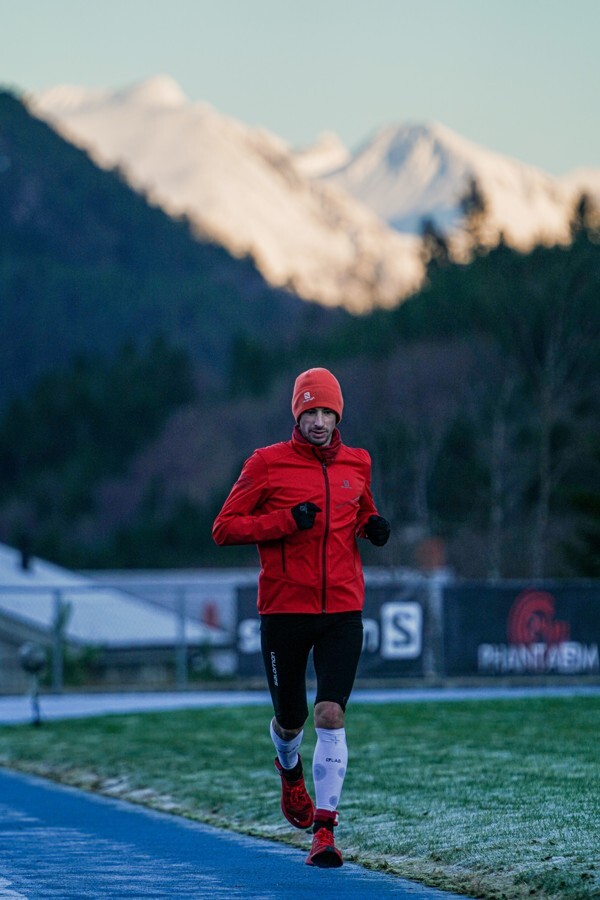
Yiannis Kouros questions Kilian Jornet’s ‘fair play’ in 24-hour record attempt for organising an unofficial event
- The 24-hour world record-holder says it is not about the shoes, but about changing the event to suit Jornet’s preferences
- Superstar Spaniard drops out after 10 hours of running due to dizziness
The 24-hour running world record-holder has questioned Salomon and Kilian Jornet’s “fair play” during their failed attempt last weekend.
Greek ultra runner Yiannis Kouros set the record of 303.506km in 1997. Jornet, one of the best mountain runners of all time, took to the track to beat it. With his sponsors Salomon, they announced the attempt early last week and then waiting for the best conditions.
“Did I mention ‘shoes’ in my post? Congratulations and many thanks to those with such incorrect interpretation!” Kouros said in his post.
Instead, he pointed to the fact that Jornet’s attempt was not an open event, and that he and Salomon were able to change the time and date to suit the superstar.
‘It didn’t go as I thought’ – Jornet opens up about 24 hour record attempt
“Are you representing the fair play, athletic spirit and equality, or the sponsor’s will?” he asked.
“Can anybody provide the rule that says a competitor is allowed to be in a place of a country and choose the date on personal basis and postpone it every now and then, awaiting for the ideal weather in order to choose the day that suits him/her to perform?”
Kouros pointed to a 24-hour race in 1985, in New York, when he did not set the record. It took place just after Hurricane Gloria. “Did I – or any competitor – have the right to go back to our countries, homes etc and return to perform in ideal conditions? No way! We took it as it came and, this is the reason I end up with 178 miles (286km), instead of 185-190.”

He then explained that he broke his ribs in 1996, just days before he set the 48-hour world record by running 473km, even though he planned to run 510km.
“Again, did I have the right to tell the organisation to postpone the event, plus to the other international runners to go home and come back in a few months when I could be recovered,” he said.
Kouros then listed why having such a limited field of selected athletes was also an advantage to Jornet. He would not have to weave around the other runners and add distance per lap.

“This is one of the many ‘short cuts’ that happen in an event unofficially set,” Kouros said. “So the trick is clear: smaller field in order not to run the extra distance by surpassing runners … Is it fair?
“If some people unaware of the sport can’t get my points, bad luck! I can’t help them further than I have, [I] sacrificed my life to show the right way,” he said.

